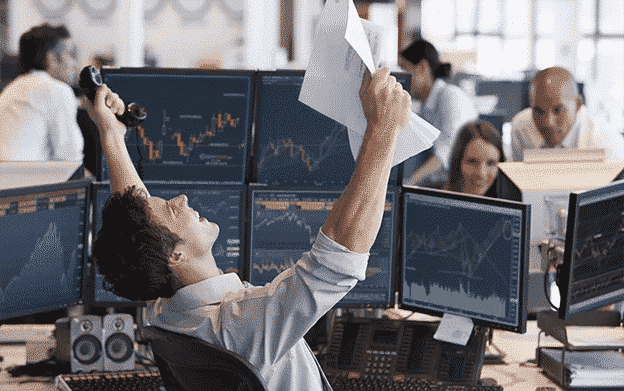Up until the 1990s, forex trading was the preserve of businesses and financial institutions. The arrival of retail forex traders on the financial scene allowed the man in the street to start trading. Now, much smaller investment amounts were required.
Forex trading has subsequently become increasingly popular. By April 2019, forex markets were trading $6.6 billion per day.
In today’s connected world, most forex trading is conducting on online platforms across the globe. Many people have learnt how to become a successful forex trader and they’re making good money on the markets.
Learning the tools of the trade
Many would-be traders have learnt the hard way that there is no easy way to make a quick buck. Successful trading on the forex market requires research, a sound understanding of the markets and a well-developed trading strategy.
Every successful trader starts his or her career studying the markets. Anyone who trades blindly without first doing their research is bound to fail. Traders must understand how economic and political fundamentals affect the comparative forex markets. They must learn how to use the tools available and predict price trends through chart analysis. The best forex platforms also have trading experts willing to offer traders advice.
Though diversification is important, traders should choose two or three currencies before they start to trade. This will allow for a full understanding of the fundamentals that drive currency price changes.
The comparative cost of any currency is heavily dependent on the size and stability of the economy of the country to which they belong. Traders that specialize in a small group of currencies can keep abreast of the fundamentals of those currencies.
Savvy traders know that markets change constantly so they stay up to date, understanding the ups and downs. They also evaluate their portfolio performance to understand the reasons for the gains and losses and make the necessary tactical changes.
The key to finding success in forex markets is knowing when to enter and when to exit. Set rules and keep records of your trades and the results. This way you can learn from the past.
A trading strategy is essential
A trading strategy is an essential part of making an overall profit. Successful traders set measurable objectives. These may be as simple as achieving a return of investment of 10%, for example.
An annual objective is preferable to a monthly goal since no trader makes a profit on every trade. Losses are inevitable. So, overall profits must exceed the losses to achieve the profit objectives.
Starting out on a demo account allows the trader to practice these newfound skills without putting their money at risk. It is an opportunity to test the strategy and adjust it accordingly. Traders should start small when they leave the safety of the demo account.
Avoiding losses
Traders should never invest more than they can afford to lose. Forex markets are hard to call, and losses are inevitable. To avoid heavy losses, traders should use the available tools and study trading techniques to include in their strategy.
Stop loss and take profit are invaluable tools that will automatically stop the trade when the currency meets certain pre-defined limits.
Forex traders can make good of the leverage that brokers offer. Leverage is there to allow traders to invest smaller amounts and still make a profit. Leverage works both ways though. As much as they can amplify a win, losses are also intensified. Traders should use leverage with caution. Over-trading can result in heavy losses.
In summary
Forex can offer lucrative profits. Yet many traders lose more than they make. Forex trading requires a level of skill that only research can deliver. Traders must have a strategy and a set of goals. They should not risk more than they are prepared to lose and they should make use of the tools at their disposal.
With the right set of skills and emotional stability, forex can offer the trader an enjoyable and profitable business.





